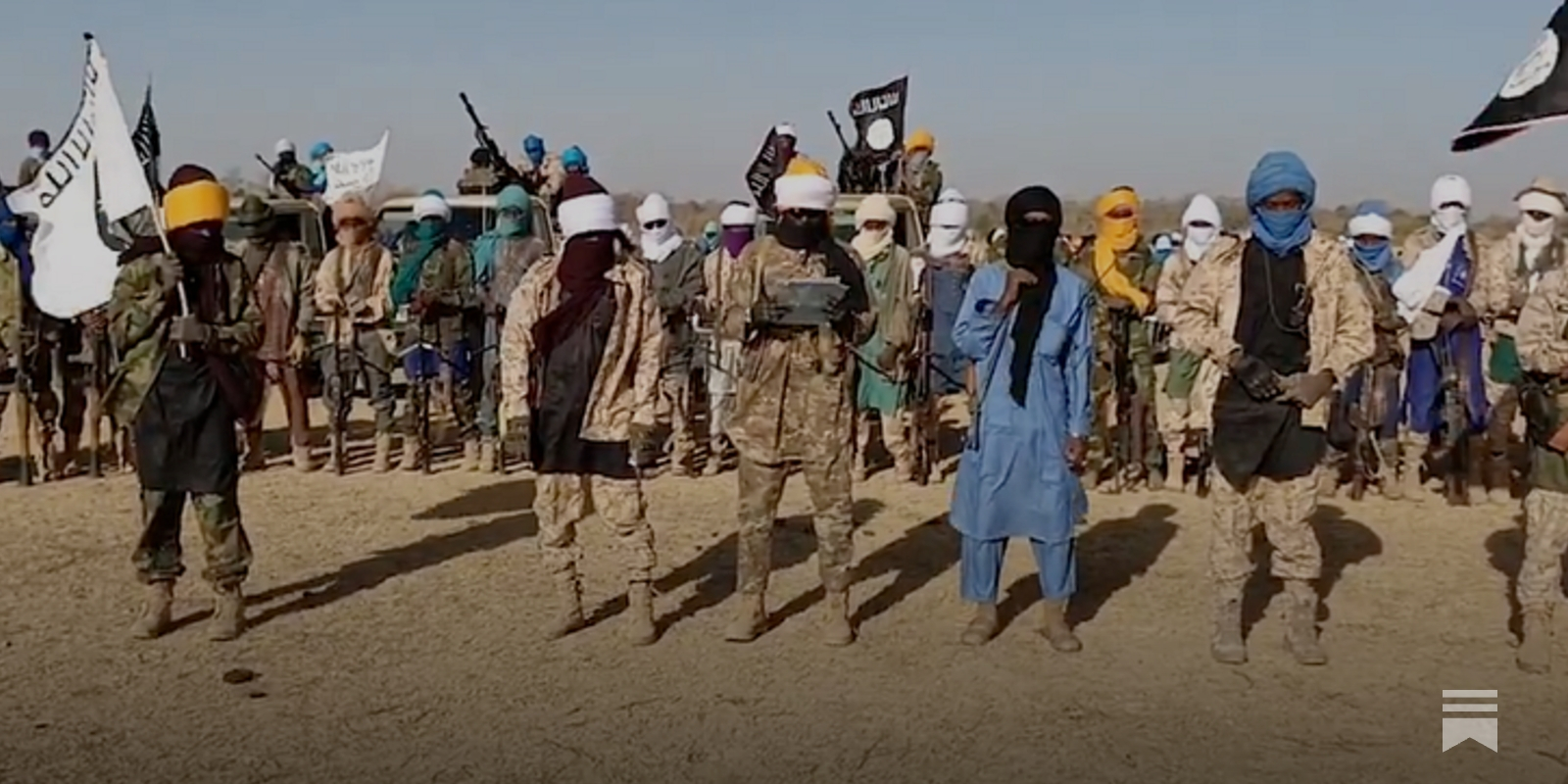In a significant development within the already volatile Sahel region, the Jama"at Nasr al-Islam wal Muslimin (JNIM), an affiliate of al-Qaeda, has released a video showcasing its Khalid ibn al Walid training camp located in Mali"s Sikasso region. The camp is reportedly composed primarily of local ethnic groups, including the Diola, Malinke, Bobo, and Bambaras, raising concerns about the deepening local engagement with extremist factions.
Background & Context
The Sahel region, particularly Mali, has been a hotspot for jihadist activity since the 2012 Tuareg rebellion led to the collapse of government control in northern Mali. JNIM has emerged as a dominant force in the region, exploiting local grievances and ethnic divisions to bolster its ranks. The recruitment of local fighters into its ranks, as illustrated by the Khalid ibn al Walid camp, signals a troubling trend where local ethnicities are increasingly drawn into the jihadist narrative, complicating an already multifaceted conflict.
The establishment of this training camp reflects a strategic shift by JNIM to capitalize on local ethnic dynamics, potentially enabling the group to gain greater support and legitimacy among these communities. The recruitment of fighters from diverse ethnic backgrounds suggests a tactical approach to expand their influence and operational capacity in the region.
Key Developments
The video released by JNIM not only showcases the training activities at the Khalid ibn al Walid camp but also serves as a propaganda tool aimed at attracting more recruits. In the footage, fighters are seen undergoing military drills and ideological training, with a focus on their commitment to jihadist principles. By emphasizing local ethnic identities, JNIM seeks to forge a sense of belonging among recruits, which may enhance their recruitment efforts in the future.
Furthermore, the camp"s location in the Sikasso region, which is strategically important due to its proximity to the borders with Côte d"Ivoire and Burkina Faso, raises alarms about the potential for cross-border jihadist activities. Analysts suggest that this could lead to a spillover of violence into neighboring countries, further destabilizing the region.
\n\n
Image for JNIM Unveils Khalid ibn al Walid Camp in Mali, Recruiting Local Ethnic Fighters
Broader Impact
The ramifications of JNIM"s local recruitment strategy extend beyond immediate operational capabilities; they also threaten to exacerbate ethnic tensions within Mali. Historically, the country has grappled with ethnic divisions, and the integration of local fighters into jihadist groups could strain community relations and undermine efforts toward reconciliation and peacebuilding.
Experts warn that the emergence of homegrown fighters in extremist groups could lead to a cycle of violence that is difficult to break. As previously reported, similar situations in other regions have shown that local recruitment can lead to entrenched conflicts, making it challenging for governments to regain control. The situation in Mali mirrors ongoing concerns about how local grievances can be manipulated by extremist groups to further their agendas.
What"s Next
The international community, particularly regional powers and Western nations, faces pressing questions about how to respond to the evolving threat posed by JNIM and similar groups. Increased military cooperation and intelligence sharing may become essential to counteract the growing influence of jihadist entities in the region.
Future developments will likely focus on addressing the root causes of extremism, including poverty, lack of education, and political marginalization. As seen in other conflicts, a comprehensive approach that includes humanitarian aid, development initiatives, and security measures will be critical in mitigating the impact of groups like JNIM.
As the situation unfolds, the implications for regional stability are profound, necessitating close monitoring of JNIM"s activities and the responses from local governments and international stakeholders.

Image for JNIM Unveils Khalid ibn al Walid Camp in Mali, Recruiting Local Ethnic Fighters


![[Video] Heavy clashes and gunfire reported in Baghdad, Iraq](/_next/image?url=%2Fapi%2Fimage%2Fthumbnails%2Fthumbnail-1768342239932-848qsh-thumbnail.jpg&w=3840&q=75)




![[Video] Gunfire between Iraqi security forces and Sadr militias in Baghdad](/_next/image?url=%2Fapi%2Fimage%2Fthumbnails%2Fthumbnail-1768343508874-4redb-thumbnail.jpg&w=3840&q=75)
